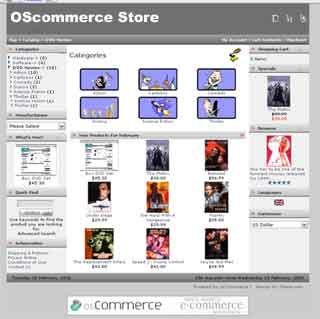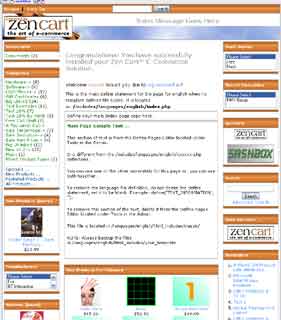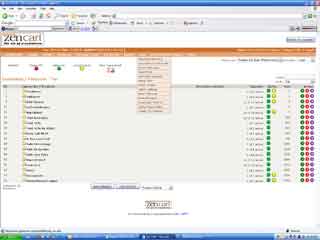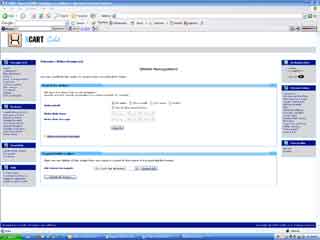 I’ve tried and used tons of different Ecommerce shopping carts over the years, and some online shopping carts can be very expensive. Nowadays, open source shopping carts have sprung up all over the place that offer novice web users the chance to open an Ecommerce store…..FREE.
I’ve tried and used tons of different Ecommerce shopping carts over the years, and some online shopping carts can be very expensive. Nowadays, open source shopping carts have sprung up all over the place that offer novice web users the chance to open an Ecommerce store…..FREE.
For a recent partnership business I’m helping start, I did a review of several open source shopping carts which allow you to start a fully functioning Ecommerce store with little know-how and little money:
————–
OScommerce:
This is the big daddy of open source shopping carts. It has an enormous amount of users who regularly contribute to their support groups and add on modules.
Pros:
- FREE
- Easy to install
- Huge support section and forum.
- Add on modules created by the community for free
- Great selection of out-of-the-box OScommerce templates available (for money) at TemplateMonster.com
- When you purchase a template, the entire shopping cart is already included for free.
- Can have a store up, running and accepting orders within minutes.
- Simple checkout screens.
Cons:
- Templates are extremely hard to manipulate, will most likely need to buy a professionally made template or have someone help.
- A little “Bulky” on the backend.
- Will take a little getting used to the backend: adding products, adding options. Not as intuitive as some of the for-pay shopping carts.
——————————-
This is basically an easier to use offspring of OScommerce. From my experience, it is almost identical in every aspect to OScommerce, just a cleaned up interface. The only major difference I saw was the ability to easily upload multiple templates, something OScommerce is pretty fussy about. Zen Cart is also slightly easier to use in the backend, but once again, is almost identical to OScommerce.
Zen Cart templates are not hard to find (for pay), but OScommerce has more templates, more add-on modules and a larger community of users.
——————
X-Cart:
This is a for-pay shopping cart that allows a full, turnkey solution to Ecommerce:
Pros:
- Easy to install
- All add on modules and templates usually cost money, but are professionally done.
- Easier to use than OScommerce and ZenCart.
- Has easier add-on features and a clean interface
- Easier to get professional help than the open source carts.
- Has very nice upselling features and makes it easy to upload multiple images for a product.
Cons:
- Not open source. If you have complicated modifications to make (which most people don’t), this shopping cart will be much harder to manipulate than OScommerce/ZenCart.
- Costs at least $200 for the software, plus extra money for templates and add on modules. Probably not the choice for an uber-cheap startup.
—————-
All of the above shopping carts allow for easy merchant account integration and are a complete out-of-the-box solution for starting an Ecommerce store. I’d suggest first downloading OScommerce and trying it out. Add a few products, add some categories, place a few orders yourself and get used to the feel of it. The only requirement is a web hosting plan that allows you to create databases.
Verdict:
OScommerce: Use if a free solution is needed. Best option when looking for free upgrade modules. Best options when looking for great looking templates.
ZenCart: Use if a free solution is needed. Works slightly simpler than OScommerce.
X-Cart: If you’ve got a few hundred dollars to spend and want a nice looking store with upsell features and easy multiple image uploads, I’d recommend Xcart. They have a free demo also.
If familiarized with these sorts of shopping carts, you can have a brilliant idea for an Ecommerce store and actually exectute the idea while you’re still motivated about it rather than first having to learn about ecommerce!





